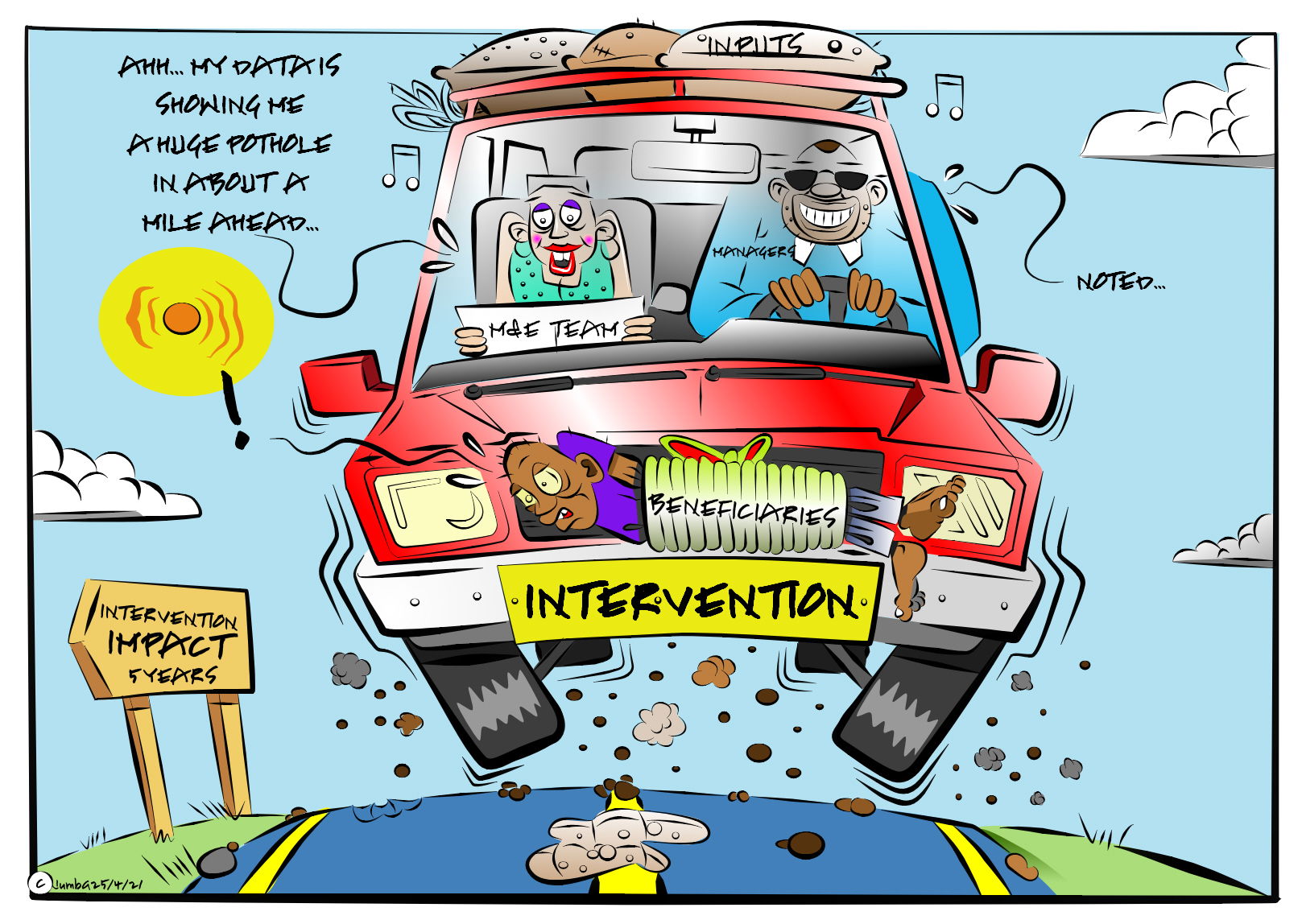Average Monitoring and Evaluation

By Michael Jumba
Monitoring and evaluation (M&E) are essential components of any development project, program or initiative. They are used to assess the progress, impact, and success of these efforts and to ensure that they are aligned with their intended objectives and goals. Monitoring refers to the ongoing collection and analysis of data and information, while evaluation involves a systematic and objective assessment of a project or program at specific points in time.
The average M&E process typically begins with the development of a monitoring and evaluation plan. This plan outlines the goals and objectives of the project or program, the indicators that will be used to measure its success, and the methods and tools that will be used to collect and analyze data. The plan also outlines the responsibilities of different stakeholders and the timeline for carrying out M&E activities.
Once the M&E plan is in place, monitoring activities can begin. These activities include regular data collection and analysis to track the progress of the project or program and identify any challenges or barriers that need to be addressed. The data collected during monitoring activities is used to inform decision-making, adjust project strategies, and ensure that the project remains on track to meet its goals and objectives.
Evaluation, on the other hand, is typically conducted at specific intervals throughout the life of a project or program. Evaluations provide a more in-depth assessment of the impact and effectiveness of the project or program and help determine whether it is achieving its intended outcomes. Evaluations also provide opportunities to assess the quality and effectiveness of the M&E system itself, which is important for continuous improvement.
One of the key challenges of M&E is ensuring that data is accurate, reliable, and of high quality. This requires careful planning and execution, as well as the use of appropriate tools and methods for data collection and analysis. It is also important to ensure that M&E activities are inclusive and involve the participation of relevant stakeholders, including the communities that are intended to benefit from the project or program.
In conclusion, monitoring and evaluation are critical components of any development project, program, or initiative. They provide essential information that can be used to make informed decisions, adjust project strategies, and assess the impact and effectiveness of these efforts. Ensuring the quality and reliability of M&E data and involving relevant stakeholders are key to the success of M&E activities. By doing so, organizations can ensure that their projects and programs are achieving their intended objectives and goals, and are making a positive difference in the lives of those they aim to serve.


